A wolf called London
What’s the best gift you can give a true wolf lover? The white wolf gazing out at you with those striking amber eyes is called London. Now 13 years old, he was once destined for the movie industry in California. With his snowy coat and wildly handsome features, it’s easy to see why. A more majestic creature you could not find.
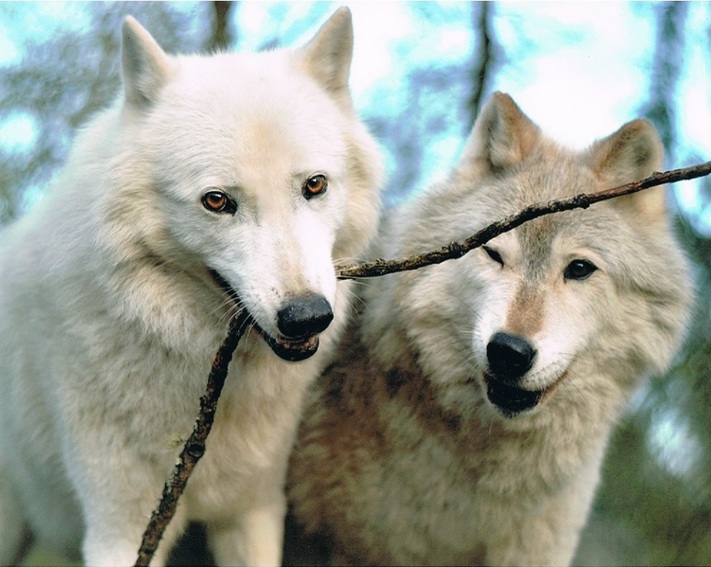 But things didn’t work out for London. Although fairly comfortable around people, he refused to be trained. He didn’t want to be an actor! And so, he was left at the nearest animal rescue centre. A sad outcome for an animal who was just being himself – a wolf who could never forget his own intrinsic wild nature.
But things didn’t work out for London. Although fairly comfortable around people, he refused to be trained. He didn’t want to be an actor! And so, he was left at the nearest animal rescue centre. A sad outcome for an animal who was just being himself – a wolf who could never forget his own intrinsic wild nature.
Thankfully, London’s story doesn’t end there. The good news is he’s no longer living a half-life. Ten years ago, he went to live at Wolf Haven International, an 80-acre sanctuary in Tenino, Washington State. It’s a place that has provided a home to more than 200 displaced and captive-born animals since 1982. And it’s a place where the word ‘wild’ is honoured. The philosophy is a hands-off, animal-centred approach. Staff do not socialise with the animals and while wolves can be seen on guided walks, there’s no physical contact with visitors.
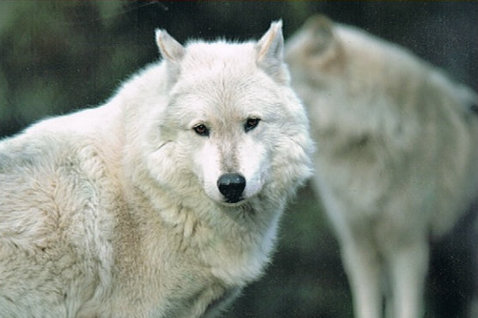 So why am I telling you this? Because I’m thrilled to be connected, in a small way, to London’s story and to Wolf Haven. Two Christmases in succession, I’ve opened a card to discover that a friend has adopted and sponsored him for me. Wow. The best presents don’t come wrapped up in boxes! The gift is entirely ‘symbolic’, of course. He isn’t mine! Wolves ‘belong’ to no-one. Trying to raise them like dogs (as this article discusses) is fraught with problems and London’s story is a testament to that.
So why am I telling you this? Because I’m thrilled to be connected, in a small way, to London’s story and to Wolf Haven. Two Christmases in succession, I’ve opened a card to discover that a friend has adopted and sponsored him for me. Wow. The best presents don’t come wrapped up in boxes! The gift is entirely ‘symbolic’, of course. He isn’t mine! Wolves ‘belong’ to no-one. Trying to raise them like dogs (as this article discusses) is fraught with problems and London’s story is a testament to that.
For me, the connection is practical and spiritual. The sponsorship supports London in an environment where he’s as close to his wild self as he can be. Plus, I get to hear news and stories about him. And as a children’s writer, I love stories …
Which brings me to another interesting fact about this amazing creature; how he got his name. Is it something to do with our capital city perhaps? That was what I assumed for some time. Until a more exciting possibility suddenly occurred to me as I opened my card this year. Could he be named after someone whose stories I loved as a child; someone who fuelled my interest in wolves?
I contacted Wolf Haven and the answer came back ‘yes’. London is named after the great American author Jack London who wrote, among other things, the much-loved classic The Call of the Wild. London is a literary wolf!
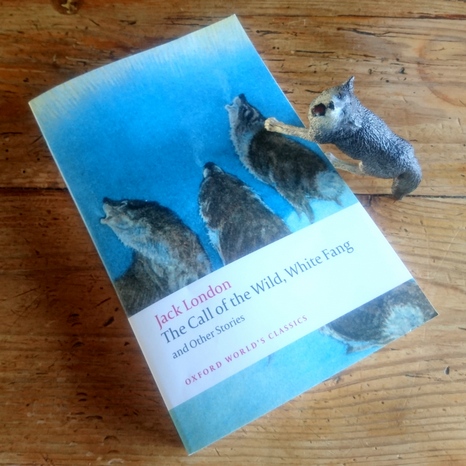 On New Year’s day, I set about re-reading the story. A dog, stolen from his comfortable home on a Californian estate, is shipped north to become a sled dog during the time of the Klondike gold rush. His punishing existence and the human brutality he encounters along the way, drive him eventually to respond to the call of his ancestors and join a wolf pack. Fast-paced and visceral, the adventure is told in a style I greatly admire; it’s direct yet lyrical and comes from the heart. When the dog-hero, Buck, achieves an almost mythic status in the wild, it had me close to tears. Not least because it reminded me of my feelings towards my own fictional wolf, Alpha, in The Mirror of Pharos.
On New Year’s day, I set about re-reading the story. A dog, stolen from his comfortable home on a Californian estate, is shipped north to become a sled dog during the time of the Klondike gold rush. His punishing existence and the human brutality he encounters along the way, drive him eventually to respond to the call of his ancestors and join a wolf pack. Fast-paced and visceral, the adventure is told in a style I greatly admire; it’s direct yet lyrical and comes from the heart. When the dog-hero, Buck, achieves an almost mythic status in the wild, it had me close to tears. Not least because it reminded me of my feelings towards my own fictional wolf, Alpha, in The Mirror of Pharos.
‘… a great, gloriously coated wolf, like, and yet unlike all other wolves … may be seen running at the head of the pack through the pale moonlight or glimmering borealis, leaping gigantic above his fellows …’
Thanks to a wolf called London I rediscovered a masterpiece – another gift I had not expected! It’s a brilliant read for all ages with a powerful message about the way we should treat and respect animals, and each other.
Thank you to my dear friend, Patti Mickelsen, for this amazing present. Sending a howl across the ocean to you, Wolf Haven, and of course, to London! (Photos reproduced by kind permission of Wolf Haven International.)
***
Review in Wolf Print
The following review of The Mirror of Pharos appeared in Wolf Print, a magazine published by the UK Wolf Conservation Trust. This gorgeous, glossy magazine is available in print and online. It’s full of cutting edge articles about wolf conservation, wolf behaviour and news from around the world. (Electronic issues are free – click here for the link.) The Trust closed its doors to the public in 2018 but continues to care for its ten resident wolves.
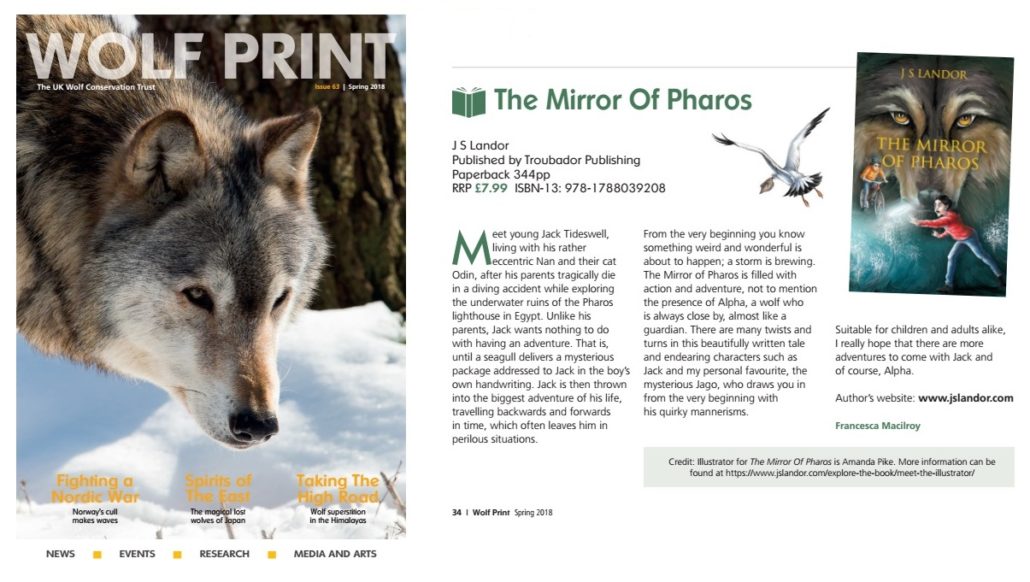

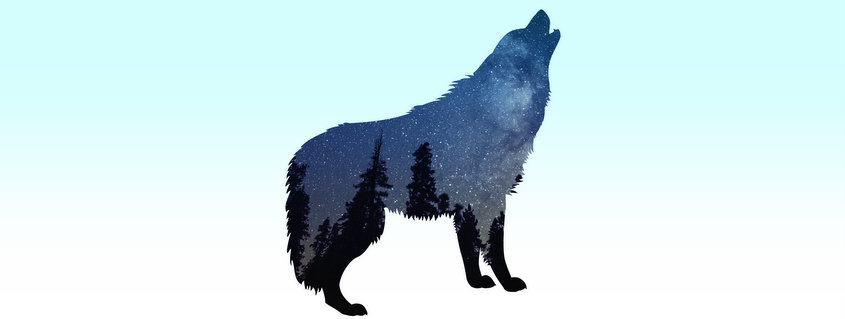
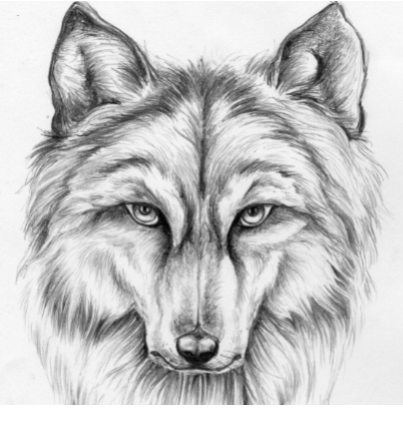 Buy The Mirror Of Pharos from the Author
Buy The Mirror Of Pharos from the Author 
